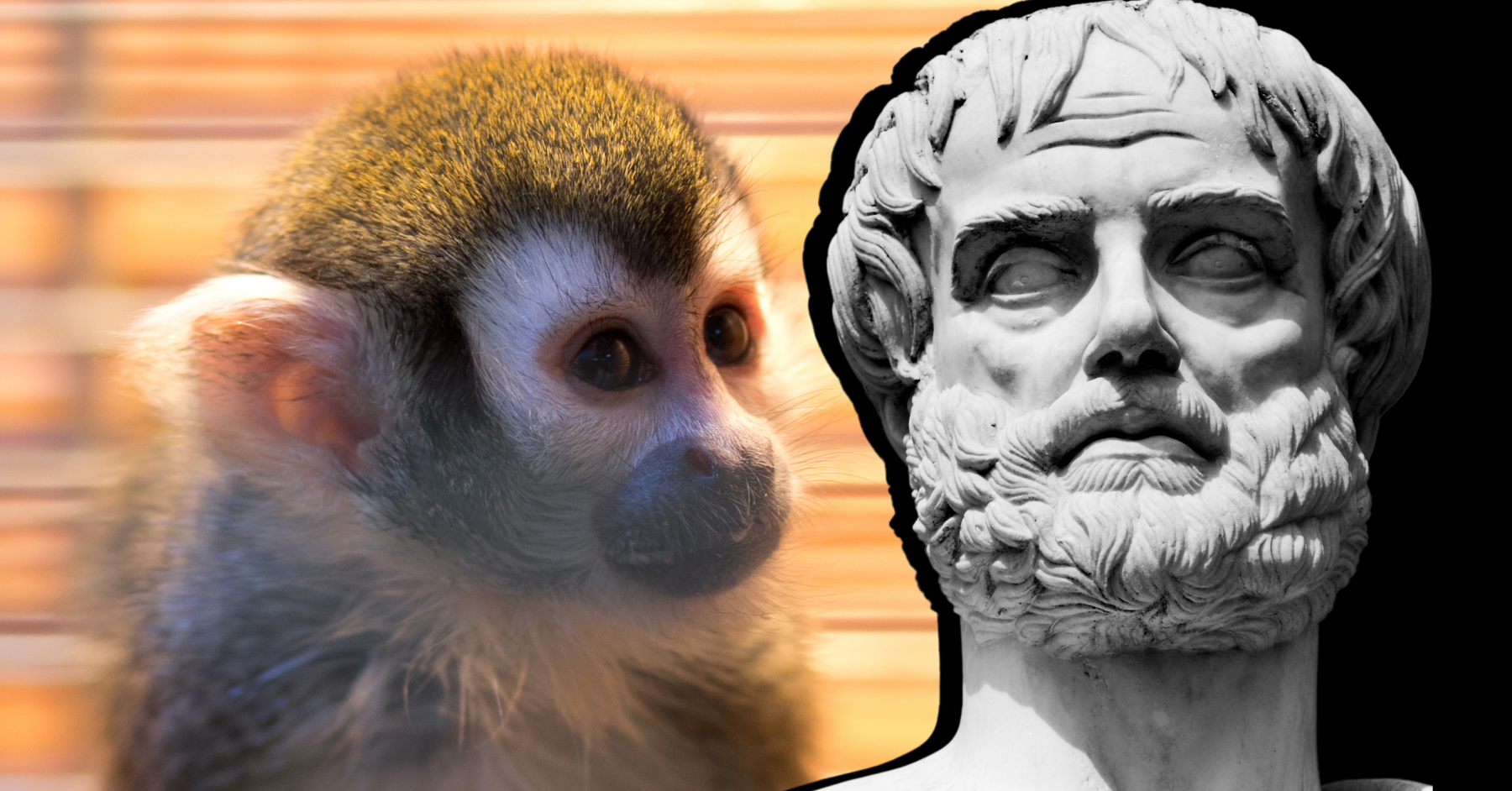
Today’s Animal Researchers White-Knuckle Ideas from 400 BCE
It may be 2025, but the animal research industry is still clinging to ancient ideas.
Did you know that the Western justification for exploiting nonhuman animals in biomedical research traces all the way back to ancient Greece?
The prevailing mindset has deep roots in the philosophy of figures like Aristotle, who claimed that humans were “‘superior’ to other species” and that humans could “morally” use and exploit them “for any purpose that might be of service to them”. Indeed, Aristotle actually laid the foundation for the “us versus them” divide, which, as we recently discussed, continues to be used to justify animal experimentation.
His “scientific” reasoning? Nonhuman animals didn’t possess “souls” and, therefore, lacked moral status….
Somehow, this unscientific, unprovable belief continues to find use as a leading justification for the “experiment-based research program that most biomedical researchers carry out today….”
Modern animal researchers may have swapped out “soul” for terms like “rationality” or “consciousness”, but their rationale remains fundamentally unchanged.
As former animal researcher Richard Miller explains:
Since antiquity, a sharp dichotomy between animal and humankind has been posited by those who, for one reason or another, are eager to claim a unique and privileged position for humanity in the spectrum of creation. Many aspects of this conversation are still the same today. All one has to do is change the word ‘soul’ for a word such as ‘consciousness’ and the character of the debate is virtually identical today to that of ancient times.
This mindset was and is not only ethically bankrupt – but also scientifically incoherent.
Consider Greek and Roman vivisector Aelius Galen, “one of the most influential biomedical researchers in history” and the first creator of “an extensive program of animal vivisection that resembles how scientists investigate biomedical problems today”. Galen ascribed to Aristotle’s position on human superiority and justified his “incredible cruelty” by characterizing nonhuman animals “as being fundamentally different from humans” because they supposedly lacked rationality.

Galen exploited the physical similarities between humans and other animals to justify his animal experimentation, while at the same time denying other animals’ feelings and thoughts – a glaring contradiction:
If animals like apes were close enough to serve as reliable analogs to human anatomy and physiology, might there not be similarities in their abilities to reason and to feel? But Galen never made such a connection. Here again, this contradiction still echoes down the ages to our contemporary use of animals in scientific research….
Animal researchers have clung – white-knuckled – to this glaring contradiction for millenia, because it’s about power, not science.
Modern animal researchers are just like Aristotle and Galen in their reliance on unsound logic to “[f]ree[]” themselves “from the necessity of any more or ethical consideration for [their] animal victims” and to justify “literally do[ing] anything [they] please[]” – and this is “precisely the point”.
Animal research isn’t just unethical. It’s rooted in ancient, unscientific beliefs designed to grasp and hold onto power.
Nothing borne from this can be viewed as modern or progressive; indeed, it’s all just a relic of the past, one that anyone truly interested in the wellbeing of humans and other animals should have – and would have – left behind long ago.
But, that’s not what animal researchers are interested in; that’s not what they’ve done; and that’s not what they’ll do unless we force them to.